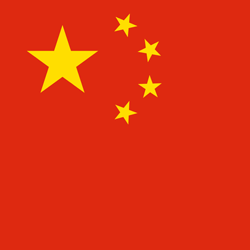
Tom G. brings us another installment of his experiences as a 40k community organizer in China!
In mid may we brought China onto the ITC stage with the North China Open. Since then I’ve been asked many times what type of armies make it here, what Chinese players field, which language we play in, and most repeatedly, what the “Chinese meta” is? I’ve been talking to players from across the country about this topic, both Chinese and foreigners like myself (or “laowai” 老外). The consensus is too complex to sum up in one “meta”, and really speaks of a community growing and developing, but with deep roots. So this article attempts to answer the question “what is the Chinese meta”, while also looking at why that is, and what we’re going to see in the future.
I’ve been living in China for a year now, and playing Warhammer where I can, but mostly missing out on the regular games I was getting in the states. I ended up playing in Beijing, about an hour’s train ride from my little suburb of Tianjin. I was playing in a nice gaming shop/café with a bunch of other expats. My first game was against a Scottish guy who played with an incomprehensible collection of proxies and counts-as that baffled me, and I was worried that this was going to be my experience of playing over here. But over a couple of trips I found some competent and experienced players who gave me some challenging games (read: kicked my butt up and down the table.) But while I played on one table, the other two tables were full of Chinese players having awesome looking games, entirely in Chinese… which I really don’t speak.
And though we played in the same place, we could not claim we played together. Each group had one or two players who spoke the other language. But none confident enough to bring themselves to play together. One of the local players who was confident in his English, going by the name Tokugawa, played me, and while his English is strong, my attempts to discuss even numbers of hits was met with mild amusement. So we continued to play separately, Foreign and Chinese players in two worlds, existing in the same space, playing the same game, but not crossing over.
To make this more stark, it is important to understand the language barrier is even more extreme in written text. To a non-native speaker, the Chinese character system is dizzyingly complicated, and just reading an average newspaper can require you to know somewhere in the region of 2000 different symbols. For example the Chinese characters for Warhammer are战锤 , while eldar is灵族. Why do I bring writing into this? Because that’s how we search the internet, especially how I began to search the internet to find Chinese wargaming groups.
What you need to know is that here in China there exists essentially two app ecosystems. Everyone in the country uses WeChat (the ubiquitous chat app that is also your credit card, bank account, taxi, movie box office, Facebook, travel agency, food delivery, and everything else), and foreigners are deeply grateful that WeChat has an English interface. However, WeChat isn’t the whole picture: There’s also QQ – the older, and flourishing social media – but only native or fluent Chinese speakers use QQ – the older social media, because it is almost entirely in Chinese. They have their own video hosting sites like Iqiyi – where you will find Chinese language painting videos and battle reports. But since these are searched using Chinese characters; good luck cross pollinating and watching their videos! Even the eager gamer, trying to find out what local options there are for a game, might be daunted by their lack of ability to read and search in Chinese. I regularly navigate apps here entirely in Chinese characters based on the gut guesswork of “if I were the order button I’d be this one” and pictures. This fact that Chinese gamers use media without any options of English language interface contributes to the segregation of the gaming groups. Chinese players have their groups, foreigners have their own, and the two rarely meet.
I was determined to run a truly international tournament, not one just for the expats I’ve met on WeChat. I was able to tap into some of my local gamers, mostly through repeatedly asking the few Chinese gamers I knew to ask around, and eventually met up and taught a bunch of them to play Age of Sigmar, mostly through one of them struggling to translate and a lot of pointing. I was able to find Chinese translations of the battletomes (all translated by locals, because GW does not make official Chinese translations, and even if they did, apparently their official rulebook translation is terribly done) and create side-by-side datasheets so we play a game in two languages, and could do it mostly through gesture. From here I got contacts that made me realize there were a LOT of GW players here, many of whom really wanted to play with foreigners but were intimidated because of their lack of English. Which was reminiscent of my experience playing on a table next to a bunch of Chinese players, and wanting to play against them, but feeling shy about my shoddy Chinese.
It wasn’t until we began to plan a national scale tournament that we saw just how big and active that group was. I met gamers who have Chinese language painting videos, who translate the codexes, who compete aggressively (especially in AoS) I also discovered that this huge country is populated by pockets of gamers, clustered in the big cities. These pockets are completely distinct in terms of meta, because there is almost no-cross pollination. So the Shanghai players play together, but Beijing, 750 miles away, is the next big group, and there’s almost nothing in between. Players rarely move from one to the other, so their metas are entirely distinct. Each big city, then, has a Chinese meta and an English meta, which do not mix. There are outliers, of course, for examples smaller places like Wuxi and Ningbo where Chinese and foreign players play games against each other, but where this forms it is mostly from lack of options. They have so few players that they cannot form their own cliques.
So what can I say about the “Chinese meta” that I deny the existence of in my title? Well, the nature of small groups and few big events has allowed some odd bubbles to exist: armies that might not play well outside of their groups. Power Armored armies are common here – both Astartes and chaos make up a large volume of armies played, half the armies at the North China Open. Primaris, especially, are a common sight on gaming tables. Because of the price issue, knights are less common than you’d expect – at our recent tournament only showed up in 3 armies (of 24) with only one castellan. Eldar were next most common, with five variants of Aeldari on the tables. Beyond that other factions showed in ones and twos.
While the tournament was won by a chaos soup that looks very familiar, and there are players on the top tables who run armies that would not look out of place in any U.S. tournament, there are some more eclectic mixes making progress – a homagaunt horde, ork flyers, necrons…. with actual warriors! These might show up in other places, but in China they could be reflective of micro-metas in their hometown. One group of three travelled from Guiyang (a city a thousand miles from the tournament, it’s a small Chinese city – so only four million people) where there are only four players. There a Necron list is dominant, but a genuine Space Wolf list holds its own.
So the reality of China is that there is yet to emerge anything close to a national, or even genuinely regional meta. Instead we consist of micro-metas, towns and cities, subdivided in many cases into foreign and Chinese, each with their own flavor. As we continue to run large events, who knows, we might see a national consensus emerge. Our next big event is in September in Shanghai, and I look forward to seeing a larger number of players come and compete in the unusual and exciting world that we’re building; a truly China-wide tournament scene.
And remember, Frontline Gaming sells gaming products at a discount, every day in their webcart!

